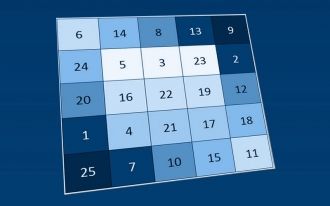- BRAINTRAIN |
- Blog |
- Attention |
- How to Stay Focused in Any Circumstance

Bogdan Moroz 15.03.2020 2009 Comments
The concept of attention is multifaceted and depends on various factors, yet it is a tangible process that directs our focus and energy toward a specific object or phenomenon. This ability allows us to deepen our understanding of an object and channel most of our mental potential into processing specific, prioritized information.
In one of our articles, “Developing a Schoolchild’s Thinking”, we discussed the importance of early cognitive development. Similarly, it’s crucial to train attention, as maintaining focus often requires significant effort.
Attention Is Selective
Selectivity means not everything in our field of vision automatically captures our attention. In other words, our consciousness controls attention and decides what to focus on. However, this process isn’t always deliberate or justified—habits often play a significant role.
Limited Attention Capacity
Like short-term memory, our attention has a clear, limited capacity, preventing us from focusing on everything at once. This means everyone must prioritize what deserves their focus. If we can’t attend to everything, we must choose the most important and direct our attention there.
Prioritizing the Essential Over the Secondary
Unfortunately, not everyone grasps this principle of attention, but it remains unchanged. What often happens? Laziness and habits dictate what we focus on first.
It’s rare to see a child so focused on studying that they ignore games or cartoons while doing tasks.
A sensible approach is to create a hierarchy of important things and separate the secondary ones to avoid mental clutter. This doesn’t mean ignoring rest or entertainment entirely, but consciously prioritizing processes you deem truly important in your life.
Combating Distraction
Distraction is the opposite of concentration—a state where you can’t focus on one object because multiple objects compete for attention, reducing efficiency to a minimum. This is evident in multitasking, as detailed in our article “Multitasking: A Complex Path to Simple Solutions.”
Combating distraction is essentially training attention, and we’ll explore its principles further.
Quantity vs. Quality
The more tasks we try to juggle, the worse we perform. Conversely, for quality attention, minimize the number of objects. It’s easier to focus on one friend than a group, or to complete one task well rather than tackling ten.
Seeking Positive Emotions
Motivation is key to any achievement, including attention training. To enjoy implementing your principles and reaching goals, you need positive emotions from the process. Want to be more attentive at work? Find joy in it. The same applies to other areas of life.
The more positive emotions an object evokes, the easier and faster you’ll learn to focus on it.
Diving into Details
We often focus on the end result, like becoming a great singer, but exploring the small details of the process is key. This boosts interest and makes sustaining attention easier.
Attention to Inner State
Beyond skills and tasks that bring tangible rewards, don’t neglect your inner state. When speaking with highly successful people, you’re unlikely to find someone who says they achieved everything by blindly following a standard formula without self-reflection. Many spent time early on finding themselves, their principles, and a purpose worth dedicating their life to.
In this context, we’ll explore another key aspect of attention: energy accumulation. Without sufficient self-care, you’ll never gather enough energy to overcome daily challenges across all life areas. Alongside education, relationships, and work, spiritual development is essential. It positively impacts all aspects of life, fostering calm and self-confidence.




